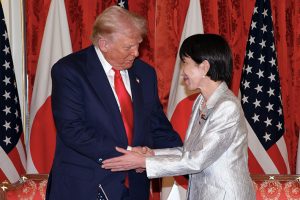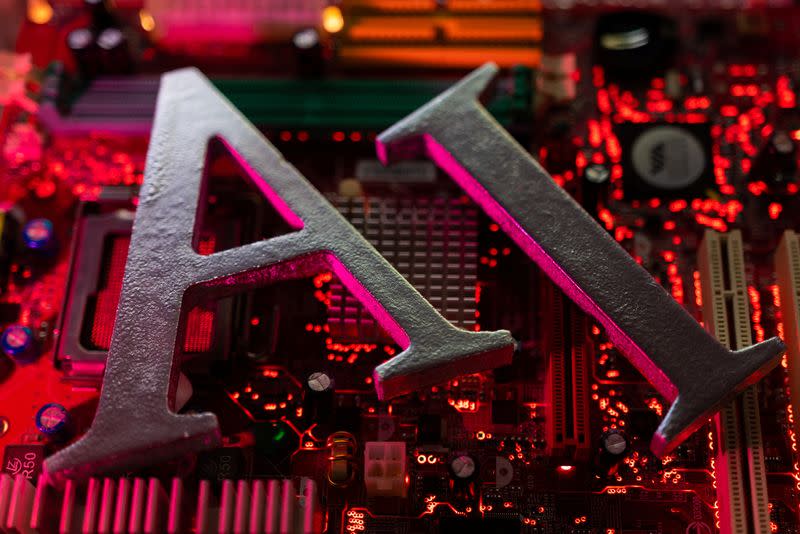Five US venture capital (VC) firms have invested at least $3 billion into Chinese tech companies “that facilitate human rights abuses”, bolster the Chinese military and its computer chip supply lines, according to a new report by a House select committee.
The firms – GGV Capital, GSR Ventures, Qualcomm Ventures, Sequoia Capital China, and Walden International – all based in California, reportedly funnelled over $1.9 billion to Chinese AI companies and $1.2 billion to China’s chip supply chain.
The report details the investments these VC groups made in a long list of Chinese companies over many years, such as chip giant SMIC, Chinese companies involved in artificial intelligence, and the drone-maker DJI.
More than a billion dollars was invested in TikTok’s parent company Bytedance, which was accused of collaborating with Megvii, iFlytek, SenseTime – firms that the panel says were “implicated in the Uyghur genocide”.
ALSO SEE: China’s Bid to ‘Cheat’ a Way to Chip Prominence is Failing: Envoy
VC investments now seen as undermining US security
A summary of the House Select Committee on the Strategic Competition between the US and the Chinese Communist Party said: “US investments were critical to the early growth and success of some of the PRC’s largest and most notorious AI and semiconductor companies, many of which are now blacklisted by the US government over national security concerns.”
It suspected that other companies invested many more billions “into PRC companies that support the PRC’s military, digital authoritarianism, and efforts to develop technological supremacy and undermine American technological leadership.”
This money and the mentoring that US venture-capital firms allowed many China startups to become global corporations.
The House panel, led by Republican Mike Gallagher and Democrat Raja Krishanmoorthi, recommends in its report that further “robust” sector-based restrictions be imposed on outbound investment in China, saying such moves are “a national security and human rights imperative.”
The report urges Congress to regulate outbound investment in chips, AI, and quantum information technologies, and limit US investment into these critical tech sectors, which Beijing has “openly declared its intent to dominate.”
It said that some of the five firms had divested from certain investments in China, but others had yet to divest investments from Chinese companies linked to rights abuses.
Sequoia Capital, for example, announced in last year that it would split its China business into a new entity, called HongShan.
“By splitting off their China businesses, it appears likely that Sequoia and GGV will reduce the flow of American technological and managerial expertise from those two US VCs to PRC-based companies, which is a step in the right direction,” it said.
“However, without further legislative action, it is not clear whether these splits will in fact staunch future flows of American capital to problematic PRC companies — indeed, such splits may insulate some types of capital flows from regulatory scrutiny they would have otherwise been subject to” under an Executive Order signed by President Biden in August 2023, which aimed to curb investment into semiconductors, quantum tech and artificial intelligence.
Many US firms had voiced concern “about cooperating with the Committee’s investigation because of pressure or fear of pressure from the PRC government and the CCP,” the report said.
Indeed, one firm said its employees in China were “‘scared to death’ about providing basic fund information to the Committee because of potential repercussions”.
Call for ban on US investment in entire tech sectors
The report said US VC investment in China “exploded” in a decade after the mid-2000s, when the US encouraged investment in China because it believed greater economic ties would encourage economic liberalization.
“Unfortunately, we have seen the opposite. As US capital flows into PRC advanced technology companies grew, the PRC channeled technological advances to facilitate the regime’s authoritarian surveillance state and human rights abuses and propel the PRC’s military modernization.”
The Congress panel said Biden’s executive order was “an important first step”, but it was “necessary to implement sectoral investment controls to prevent US capital from flowing to entities that support the PLA or the PRC’s domestic repression or genocide.”
That means a ban on US money going to tech sectors that China wants to dominate, which were outlined in the PRC’s 14th Five Year Plan.
The issue of US investment in China, particularly in tech areas that could be benefit the Chinese military, has become a focus of greater attention recently, partly because of the US election due to be held later this year.
- Jim Pollard
ALSO SEE:
Venture Capitalists’ Backing China Put Democracy at Risk – NYP
US Seeks Details on Sequoia’s Chinese Tech Investments – FT
US Seizes Website Domains Used by North Korean IT Workers
Venture Capital Giant Sequoia to Hive Off China, India/SEA Units
China ‘Strongly Dissatisfied’ at US Ban on Tech Investment
Sequoia Plans $9 Billion China Fundraising – FT
China Drone Maker, Genomics Firm, Others Added to US Blacklist
Foreign Cash Flees China as Investors Shun Autocracies – Nikkei
























